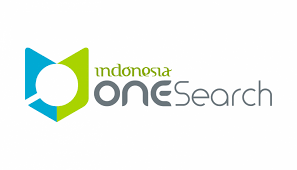The Impact of Economic Globalization on The Indonesian Economy
DOI:
https://doi.org/10.52300/jemba.v3i2.9694Keywords:
globalization, indonesian economyAbstract
Economic globalization is a process of integrating the national economy into the global economic system carried out by TNC, WTO, IMF and World Bank actors. Economic globalization is the increasing economic integration and interdependence of national, regional and local economies throughout the world through the intensification of cross-border movement of goods, services, technology and capital. Globalization causes trade between countries to become freer. This is one of the greatest benefits for nation building. Domestic industries experience reduced trade barriers and have access to wider international markets. Economically, Indonesia depends on international trade, production and finance. Therefore, the Indonesian state is vulnerable to international pressure and globalization. Economic globalization has an impact on national economic laws which must appear as an integration mechanism that can harmonize various internal interests of the nation, national and international interests as well as between sectors of national life. Economically, there is pressure on increasingly competitive trade, multinationalization of production, integration of financial markets and the influx of global capital investment. In facing the impact of economic globalization, the strategy used is to play an active role in the negotiation process with globalization actors and create national economic laws, especially regarding foreign investment, which accommodate global value interests to be utilized for national economic development.
Downloads
References
Adler, and Haas. 1992. “Epistemic Community Conclusions, World Order, and the Creation of Reflective Research Programs.” International Organizations 46.
Alexandro, R. (2021). Teacher's Strategy in Managing Classes in Online Economics Learning to Increase Motivation and Achievement in Economics Learning for Class XI Social Sciences. JTP-Jurnal Teknologi Pendidikan, 23(3), 235-247.
Christa, U. R., Wardana, I. M., Dwiatmadja, C., & Kristinae, V. (2020). The role of value innovation capabilities in the influence of market orientation and social capital to improving the performance of central Kalimantan bank in Indonesia. Journal of Open Innovation: Technology, Market, and Complexity, 6(4), 140.
Elia, A., Negara, D. J., Neneng, S., Anden, T., Astuti, M. H., & Segah, H. (2022). State versus action orientation and compliance during the COVID-19 pandemic in Indonesia. Heliyon, 8(10).
Estuningtyas, and RD 2018. "The Impact of Globalization on Politics, Economics, Ways of Thinking and Ideology and the Challenges of Da'wah." Al-Munzir 11(2): 195–218.
Imaniyati, Neni Sri. 2002. Economic Law and Islamic Economics in Development . Bandung: CV. Mandar Forward.
Mairing, J. P. (2021). Proving Abstract Algebra Skills with Problem-Based Learning Integrated with Videos and Worksheets. Bolema: Boletim de Educação Matemática, 35, 1000-1015.
Martin, Khor. 2002. Globalization: The Trap of Southern Countries . Yogyakarta: Cindelaras Pustaka Rakyat Intelligent.
Mantikei, B., Christa, U. R., Sintani, L., Negara, D. J., & Meitiana, M. (2020). The role of responsible leadership in determining the triple-bottom-line performance of the Indonesian tourist industry. Contemporary Economics, 466-476.
Pranoto, and E. 2018. "Development of the Indonesian Economic Legal System Based on Pancasila Values in the Era of Globalization." Law Spectrum Journal 15(1): 89–111.
Rizkia, AA, and Rahmawati S. 2021. "Factors That Influence Anti-Monopoly and Unfair Business Competition: Economic Globalization, Business Competition, and Business Actors." Journal of Applied Management Science 2(5): 631–34.
Sutrisno, Endang. 2007. An Anthology of Law and Globalization . Genta Press Publisher.
Wardhono, and A. 2020. Indonesian Economic Democracy in the Midst of Globalization: Between Conglomerate Economy and People's Economy . Yogyakarta: Ombak Publishers.
Winarno, Budi. 2006. Globalization Opportunities or Threats for Indonesia . Jakarta: Erlangga Publishers.
Young, Oran. 1982. “Regime Dynamics: The Rise and Fall of International Regimes.” International Organizations 36(2).
Zulkarnaen, W., I Fitriani, and N Yuningsih. 2020. "Development of Supply Chain Management in Managing Election Logistics Distribution in a More Appropriate Type, Exact Quantity and Exact Time Based on Human Resource Competency Development at the West Java KPU." MEA Scientific Journal (Management, Economics & Accounting) 4(2): 222–43. https://doi.org/10.31955/mea.vol4.iss2.pp222-243.s.












